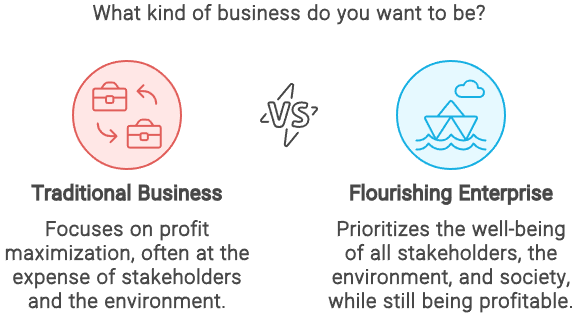Introduction
In today’s rapidly evolving business landscape, fostering resilience in the workplace has become a necessity. A resilient work culture not only boosts productivity but also creates a thriving environment for both employees and leaders. In this blog post, we’ll explore key strategies that C-Suite leaders can adopt to cultivate resilience, ensuring a flourishing workplace well-being for everyone.
The Role of C-Suite Leaders in Building Workplace Resilience
C-Suite executives are pivotal in shaping a resilient workplace culture. Their leadership style significantly influences organizational ethos and employee morale. Leaders who embody empathy, decisiveness, and vision can create an environment conducive to resilience and innovation. By aligning decisions with the core values of support and adaptability, the C-Suite sets a tone that permeates the entire organization, promoting workplace well-being.
Key Strategies for Building Workplace Resilience
1. Promoting Open Communication
- Encourage Feedback and Open Dialogue: Regularly seek input from team members about their experiences and suggestions for improvement.
- Foster a Culture of Transparency and Honesty: Ensure all communications are clear and straightforward, building a trustworthy environment.
- Implement Regular Check-Ins and Meetings: These should go beyond progress updates to include personal connections, strengthening team cohesion and workplace well-being.
2. Prioritizing Employee Well-being
- Introduce and Promote Wellness Programs: Include fitness memberships, mental health days, and stress management workshops to support overall well-being.
- Provide Mental Health Support and Resources: Offering counseling services and mental health training for managers helps address workplace challenges.
- Support Work-Life Balance Initiatives: Flexible working hours and remote work options significantly contribute to employee well-being and resilience.
3. Investing in Employee Development
- Focus on Continuous Learning and Training: Offer training sessions, workshops, and seminars to enhance professional skills.
- Provide Opportunities for Career Advancement: Clear paths for career progression demonstrate a commitment to employee growth within the company, reinforcing workplace resilience.
- Encourage Mentorship and Coaching: Foster personal and professional development through mentorship programs, which strengthen organizational ties and resilience.
4. Nurturing a Supportive Environment
- Build Teams Based on Trust and Respect: Promoting trust and respect encourages collaboration and support within the workplace.
- Recognize and Celebrate Achievements: Regular acknowledgment of successes boosts morale and motivation, reinforcing a resilient work culture.
- Address and Manage Workplace Conflicts Effectively: Implement conflict resolution strategies that emphasize fairness and respect, further supporting workplace well-being.
Benefits of a Resilient Work Culture
A resilient work culture brings numerous benefits:
- Enhanced Productivity and Efficiency: Employees in a supportive environment are more engaged and perform better, boosting workplace well-being.
- Improved Employee Satisfaction and Retention: A positive work culture reduces turnover and attracts top talent.
- Greater Adaptability to Change and Challenges: Resilient organizations respond swiftly and effectively to industry shifts and crises, ensuring long-term sustainability.
Overcoming Challenges in Fostering a Resilient Work Culture
Creating a resilient work culture presents several challenges:
- Identifying and Overcoming Common Barriers: These might include resistance to change or limited resources.
- Adapting to Diverse Employee Needs and Expectations: A tailored approach is essential since a one-size-fits-all strategy does not work.
- Measuring and Maintaining Long-term Engagement: Regular assessments and adjustments to strategies are necessary to keep the culture vibrant and resilient.
Role of Technology in Supporting Workplace Resilience
Technological tools can greatly enhance resilience efforts:
- Tools for Better Communication and Collaboration: Platforms like Slack and Microsoft Teams facilitate seamless communication, strengthening workplace resilience.
- Platforms for Wellness and Personal Development: Apps and online platforms offer resources ranging from meditation guides to professional courses.
- Analytics and Feedback Systems for Continuous Improvement: Data-driven insights help refine strategies and ensure they meet employee needs effectively, enhancing workplace well-being.
Conclusion
The journey toward a resilient work culture requires dedicated leadership from the C-Suite. By implementing the strategies discussed, leaders can foster an environment where both the organization and its people can flourish, ensuring workplace well-being and long-term success. Let this be a call to action for all C-Suite leaders to take concrete steps toward nurturing a thriving, resilient work culture.
Additional Resources
For further exploration of leadership and resilience:
- Books: Titles like “Resilience at Work” and “Leading Through Times of Crisis” provide valuable insights.
- Podcasts: “Leadership Next” and “WorkLife with Adam Grant” offer perspectives on modern leadership challenges.
- Training Programs: Workshops and seminars tailored for C-Suite executives focusing on resilience and culture-building are very beneficial.
By following this comprehensive guide, C-Suite leaders can effectively cultivate a resilient and flourishing workplace culture, ensuring their organization’s long-term success and sustainability.


